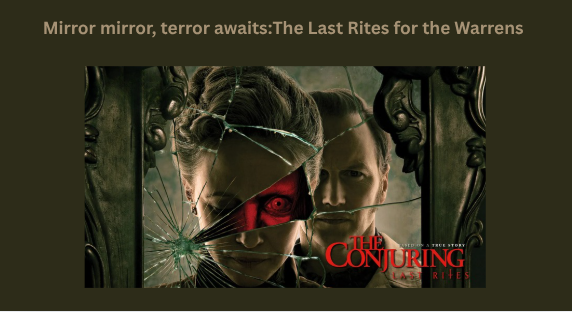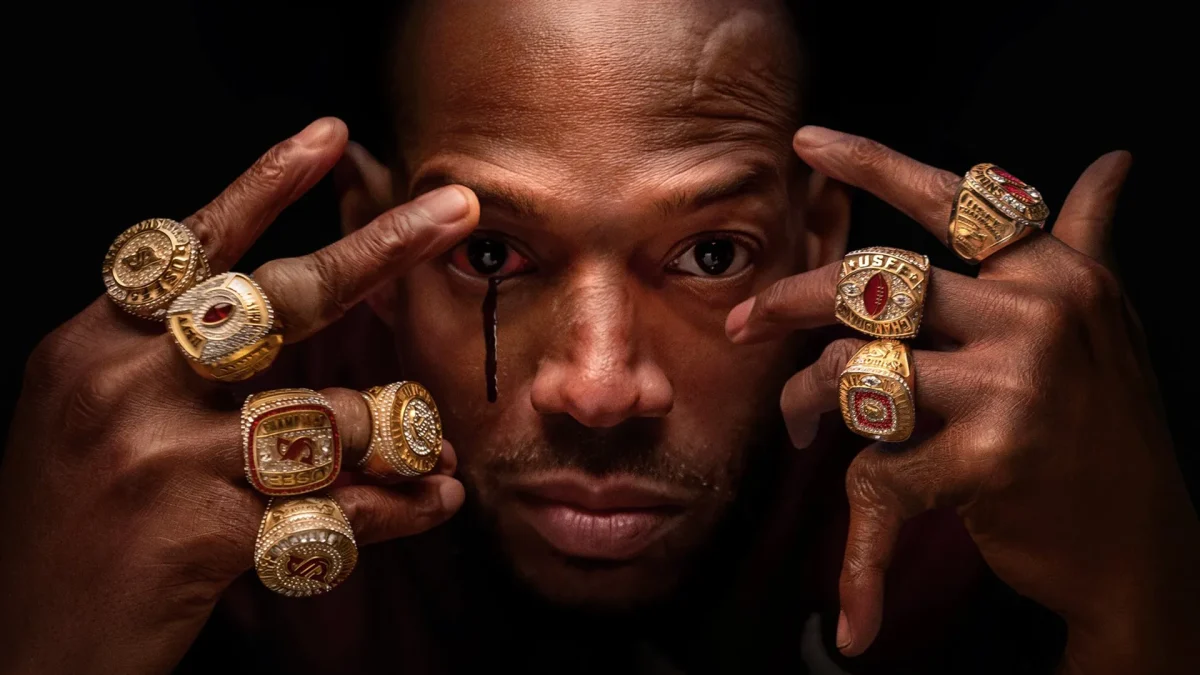Simply put, American Fiction is one of the sharpest satires in years. Loosely adapting Perceval Everett’s 2001 novel Erasure, debut filmmaker Cord Jefferson delivers a visceral deconstruction of the American fiction machine, ignited by a terrific performance from Jeffrey Wright.
At one point early into American Fiction, Thelonious “Monk” Ellison (Jeffrey Wright), a black novelist, searches a bookstore for his novels. A clerk looks them up and leads him to the ‘African-American Studies’ section. Monk wants to know why. The clerk stammers, “I would imagine that this author, Ellison, is … Black.” Monk snaps, “These books have nothing to do with African-American studies. They’re just literature.” Yet, Monk is constrained. He cannot write “just literature”.
Placed on temporary leave by the Californian university he lectures at, Monk attends a local literary conference in his hometown of Boston. He and a few fellow authors co-host a panel in what looks like a repurposed boiler room, with some ten or fifteen people in attendance. Afterward, he peers into another auditorium, large and well-lit with rows of eager, mostly white audience members and an enthusiastic white moderator: a reading of We’s Lives In Da Ghetto, a best-selling new book from author Sintara Gold (Issa Rae). Gold, a college graduate from an upper-middle-class background, reads through an excerpt in artificial ebonics, filled with regressive racial stereotypes packaged as authentic representation, pandering to a white literary world that eats it up. It’s the kind of “black story” that publishers urge Monk to write. Monk watches appalled. Monk’s inner-anger is interrupted by the standing ovation of the crowd.
Later, Monk is lying in bed when a montage for a cable channel’s “Black Stories Month” starts playing: Antebellum, Straight Outta Compton, Precious, New Jack City. These are certainly fine films on their own, but as Monk watches them consecutively strung together, he thinks, is this all they want from us?
Academically acclaimed but increasingly frustrated by his lack of success, in a bout of bitterness, he uses the pseudonym Stagg R. Leigh and cranks out My Pafology, the most over-the-top “black story” he can imagine. “Deadbeat dads, rappers, crack; you said you wanted black stuff,” he tells his wary agent (John Ortiz).
The publishing offers flood in. The two push the envelope: his agent says that the author is using a pseudonym because he is a fugitive from the federal government, Monk changes the title to Fuck. But each time they increase the caricature, the cash signs in publishing executives’ eyes grow.
Fuck erupts with popularity, showered with praise as “raw”, “real”, and “urban”; all the condescending buzz words. At last, Monk’s work is thrust into the center of the literary world, shrouding him in a moral crisis. Working with a career’s experience in both journalism and television writing, Cord Jefferson executes a terrific satire of the American entertainment establishment, pulling no punches yet landing every bit with complete precision and gravity. American Fiction is loud but never tone-deaf. That is an achievement. On the same page is Jeffrey Wright, who delivers one of the year’s best performances, layering a subtle but strong comedic showing with a keen dramatic sensibility. Despite Wright’s cemented status in Hollywood as a respected supporting actor, in a sense, it feels as if Jefferson and Wright work as a breakout duo in American Fiction. As Wright steps into the helm as the lead for Jefferson’s debut, the two lift each other up to new heights. Jefferson gives Wright some of the best work he’s ever received, establishing Wright as a bonafide leading man, and Wright powers Jefferson’s debut film in a way arguably no other actor could’ve, kickstarting his filmmaking career.
“…Cord Jefferson executes a terrific satire of the American entertainment establishment, pulling no punches yet landing every bit with complete precision and gravity. American Fiction is loud but never tone-deaf. That is an achievement. On the same page is Jeffrey Wright who delivers one of the year’s best performances…”
Essential, however, are the parts of American Fiction that are not racial satire but an earnest family drama; when Monk is not the vehicle for commentary of Stagg R. Leigh, but Thelonius Ellison. Returning home to Boston after years of drifting away, Monk faces a crumbling home life. While reconnecting with his sister (Tracee Ellis Ross), she dies of a heart attack. Shortly after her funeral, his mother (Agnes Ellison) begins to have bouts of Alzheimer’s. His brother (Sterling K. Brown) swerves in and out of their lives. Monk finds himself undertaking a new, crushing weight of responsibility. All the while, the past death of their father clouds over their heads.
The B-plot keeps a film that could’ve very easily flown away, grounded in a sober reality. American Fiction is not only a racial satire, Jefferson takes great care to establish that. While that yin-yang is crucial in principle, in execution, American Fiction’s sub-plot winds up feeling maybe too formulaic and basic, lagging behind the main plot. It contributes to Monk as a character and the film’s overarching plot to a tangible extent, but its impact doesn’t feel proportional to its runtime. But even if the film’s secondary scenes don’t elevate it to another level, they keep it firmly on track. A strong supporting cast highlighted by a vivid performance from Sterling K. Brown makes it worthwhile.
Above all, what makes American Fiction such a searing-hot satire is how strikingly familiar it is. MGM’s marketing of the film itself accidentally exemplifies itself. American Fiction’s trailer feeds nearly entirely off the film’s hot-button racial satire, completely excluding the large chunk of the runtime dedicated to the earnest family drama which is so necessary to the film’s balance. Yet, that trailer caught my eye. That’s what sells.









Jim D • Feb 18, 2024 at 11:56 am
Your best review yet
Stanley Winslow • Feb 13, 2024 at 12:23 pm
American Fiction has to be one of the best films that I’ve seen a quite a while. It’s satirical slant on black literature and black culture is spot on. The acting is all spot on ( purposefully over the top in some cases) directing wonderful. This movie is just so smart and fun. It doesn’t take itself too seriously yet drives it’s point home. I’d better see some awards when the time come.